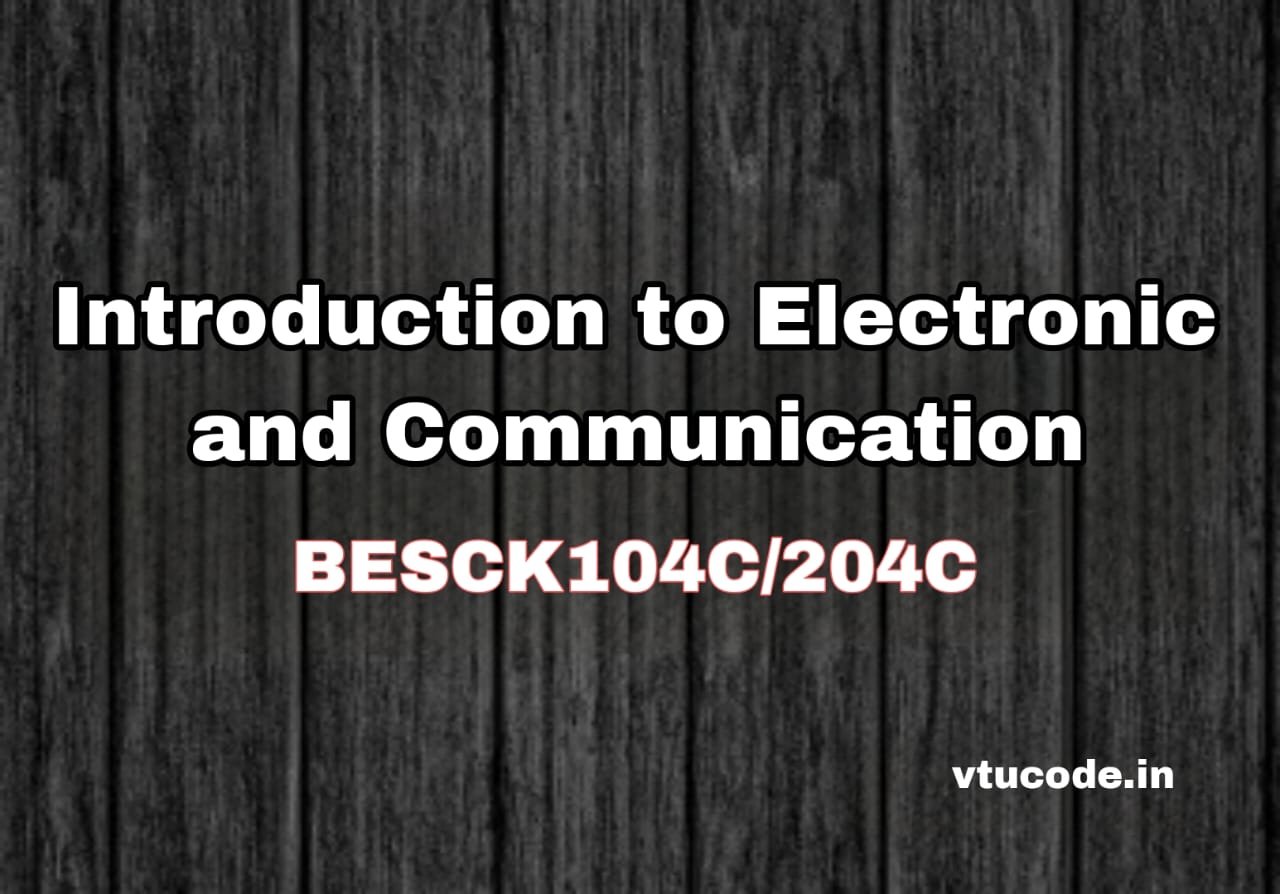Introduction to Electronics Communication BESCK104C-204C
Course Code: BESCK104C-204C
Credits: 03
CIE Marks: 50
SEE Marks: 50
Total Marks: 100
Exam Hours: 03
Total Hours of Pedagogy: 40H
Teaching Hours/Weeks: [L:T:P:S] 3:0:0:0
Power Supplies: Block diagram, Half-wave rectifier, Full-wave rectifiers and filters, Voltage
regulators, Output resistance and voltage regulation, Voltage multipliers.
Amplifiers: Types of amplifiers, Gain, Input and output resistance, Frequency response, Bandwidth, Phase shift, Negative feedback, multi-stage amplifiers.
Oscillators: Barkhausen criterion, sinusoidal and non-sinusoidal oscillators, Ladder network
oscillator, Wein bridge oscillator, Multivibrators, Single-stage astable oscillator, Crystal controlled
oscillators (Only Concepts, working, and waveforms. No mathematical derivations).
Operational amplifiers: Operational amplifier parameters, Operational amplifier characteristics, Operational amplifier configurations, Operational amplifier circuits.
Boolean Algebra and Logic Circuits: Binary numbers, Number Base Conversion, octal & Hexa
Decimal Numbers, Complements, Basic definitions, Axiomatic Definition of Boolean Algebra, Basic
Theorems and Properties of Boolean Algebra, Boolean Functions, Canonical and Standard Forms,
Other Logic Operations, Digital Logic Gates.
Combinational logic: Introduction, Design procedure, Adders- Half adder, Full adder.
Embedded Systems: Definition, Embedded systems vs general computing systems, Classification
of Embedded Systems, Major application areas of Embedded Systems, Elements of an Embedded System, Core of the Embedded System, Microprocessor vs Microcontroller, RISC vs CISC.
Sensors and Interfacing: Instrumentation and control systems, Transducers, Sensors, Actuators, LED, 7-Segment LED Display.
Analog Communication Schemes: Modern communication system scheme, Information source,
andinput transducer, Transmitter, Channel or Medium – Hardwired and Soft wired, Noise, Receiver,
Multiplexing, Types of communication systems.Types of modulation (only concepts) – AM , FM, Concept of Radio wave propagation (Ground, space, sky).
Digital Modulation Schemes: Advantages of digital communication over analog communication, ASK, FSK, PSK, Radio signal transmission Multiple access techniques.

